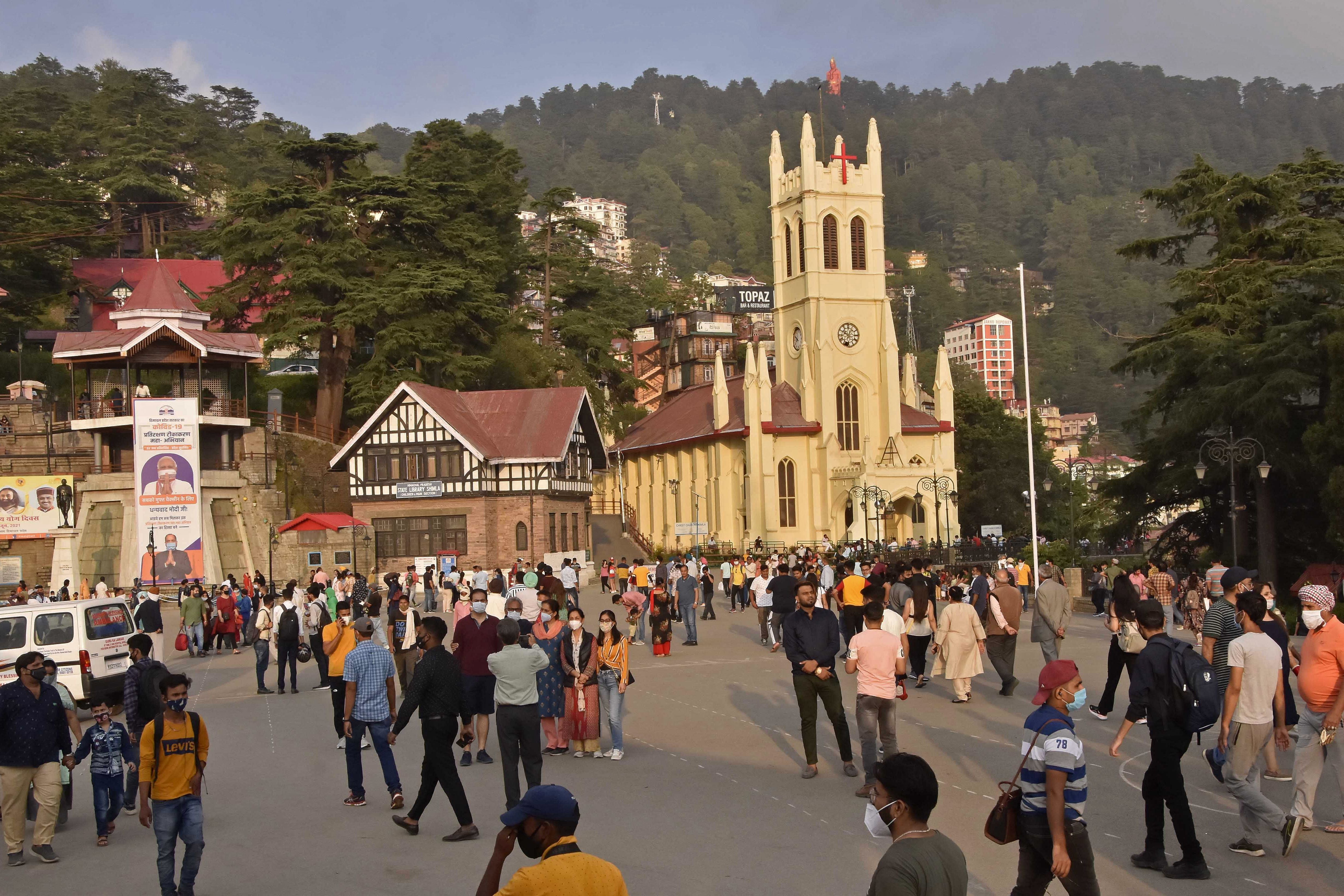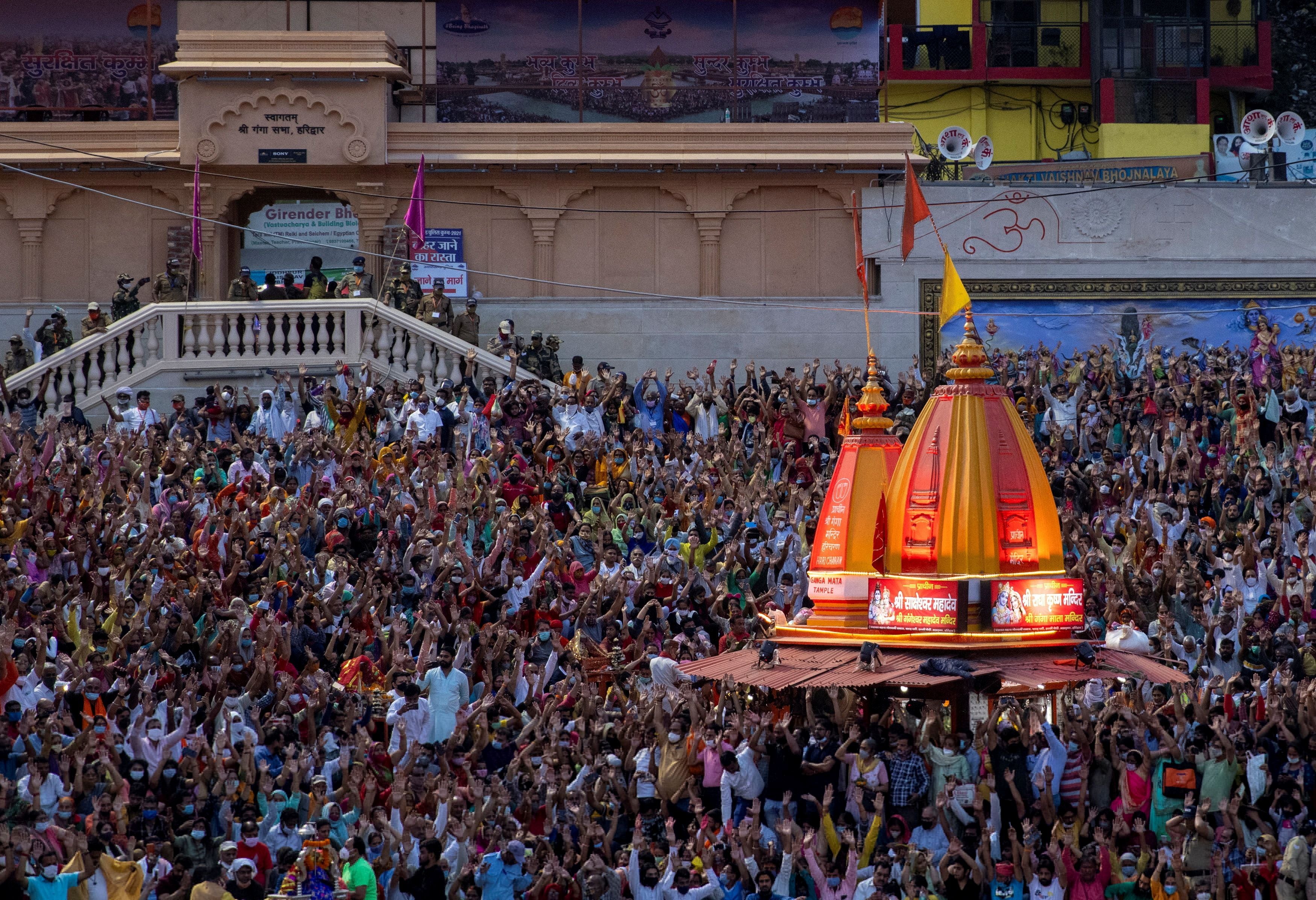What is ‘revenge travel’ during the Covid pandemic?
India’s health ministry used the phrase to express concerns over the crowding of tourist destinations not long after a devastating second wave

Itching to break free after months under Covid-19 lockdowns, people across India are heading to domestic tourism hotspots in their droves, just weeks after restrictions started to ease following a devastating second wave.
The situation has deteriorated to the point where India’s federal health ministry was forced to issue a statement warning against what it described as “revenge travel”.
The ministry, during a press briefing, said the issue of “revenge travel... could nullify all the gains” made so far.
The phenomenon of people around the world traveling straight after Covid-19 restrictions are eased is not unique to India, but is particularly stark given how bad its outbreak has been this year.
Between 600,000 and 700,000 tourists have rushed to the relatively cool northern Himalayan state of Himachal Pradesh since June alone, when border restrictions were relaxed, according to Amit Kashyap, director of Himachal Pradesh’s tourism department.
Pictures and videos of large crowds of people – without masks and packed shoulder-to-shoulder on streets – went viral on social media, adding to already heightened concerns that a third wave is just around the corner. Doctors and experts lashed out at people enjoying vacations, even as many are still reeling from the impact of the second wave that began in April.
Balram Bhargava, the director general of the Indian Council of Medical Research, described the pictures as “frightening”.
“The pictures that we have seen today are frightening and we have to be very careful, very responsible and very cautious,” he said.
In Delhi, similar scenes were witnessed in markets, forcing the government to order closure of shops in Lajpat Nagar’s Central Market and Sadar Bazar’s Rui Mandi on the basis of “gross violations” of Covid-19 protocols.
Speaking to The Independent, tourism industry expert Subhash Goyal said the scenes from the Himalayan states showed how “we are definitely moving towards the third wave”, even though he supports reopening the economy and the badly hit tourism sector.
“There is pent-up demand for travel and I am in favour of opening tourism and also opening of international borders, but at the same time the government as well as people have to ensure strict adherence to Covid-19 rules,” said Mr Goyal, who is the president of the Confederation of Tourism Professionals of India.
“There should be severe penalties for people flouting Covid-19-appropriate behaviour for endangering the lives of thousands of people,” he added.
The images of large crowds during the pandemic have been likened to the millions of Hindu pilgrims who thronged the shores of the holy Ganges river in the ancient city of Haridwar in India’s Uttarakhand state a few months ago, even as cases began to rise at an alarming rate.
The annual Kumbh mela religious festival continued despite calls to cancel it. Thousands of Covid cases were later linked to the festival, with 2,000 attendants testing positive by 15 April, according to reports at the time.
“We saw that second wave came because we were careless. We thought we have defeated Covid. Then 2 million people went for the Kumbh [festival] and elections were conducted, thus the result was in front of us,” Mr Goyal said, also referring to the state elections in West Bengal and rural body elections in the northern Uttar Pradesh state.
“Therefore, I appeal to the central government to please open up the economy, but by deploying measures to allow vaccinated people and those with Covid tests to travel, as the industry has borne the brunt of lockdowns,” he added.

The pictures of people taking up “revenge travel” left many in shock, as it came after earlier chilling visuals of people scrambling for oxygen cylinders, beds and medicines flooded social media in mid-May. It was the period when a single-day surge of more than 400,000 cases was reported and crematoriums in several cities across India ran out of space.
More than 400,000 people have lost their lives to Covid in the country, out of which half the deaths were from the devastating second wave.
Aditya Gupta, a resident doctor at India’s apex hospital, AIIMS lost his father to Covid. He slammed maskless people in an angry Twitter thread after the pictures of tourists went viral, saying he feels “so f***ing numb”.
“People walking around with no masks makes me so furious. Like you all are bloody murderers. You - every single one of you not wearing a mask- killed my father,” he said.
“God, his face. My father’s breathless face. I so want to forget that. Please help me. Please please I beg anyone. It’s not leaving me. Every time I see anything Covid related – and especially people not wearing mask – God, I wish you just felt that. I’m angry, sad, furious,” he added.
The photos triggered a wave of similar messages, where people narrated losing their loved ones and how they are still dealing with the loss.
India is still reporting an average of around 40,000 cases daily, more than Indonesia where the infection is said to be surging on the basis of 31,189 new cases a day, and Bangladesh with 11,525. Lockdown measures have been imposed in both these Asian nations, while restrictions have been steadily eased state by state in India since June.
Join our commenting forum
Join thought-provoking conversations, follow other Independent readers and see their replies
Comments
Bookmark popover
Removed from bookmarks